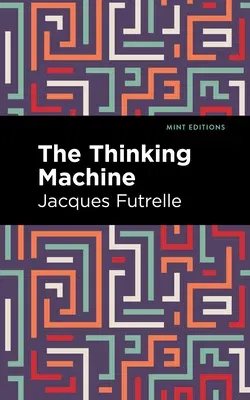The Thinking Machine (1907) is a short story collection by Jacques
Futrelle. Published at the height of his career as a leading popular
detective and science fiction writer, The Thinking Machine collects
stories that originally appeared in such publications as The Saturday
Evening Post and the Boston American. Celebrated for his brisk
storytelling and mastery of suspense, Jacques Futrelle was lost at sea
on April 15, 1912 while returning from Europe on the HMS Titanic. His
wife, who survived the disaster, had his last book dedicated to "the
heroes of the Titanic." Professor Augustus S. F. X Van Dusen, Ph.D.,
LL.D., F.R.S., M.D., M.D.S is a man whose intellect is as exhaustive as
his name. Having learned the game of chess just hours before, he
defeated grandmaster Tchaichowsky using logic and reason alone, earning
himself the nickname "The Thinking Machine." Ever since that fateful
day, Van Dusen, with the help of his trusted companion Hutchinson Hatch,
is called to solve crimes, complete puzzles, and face challenges no
normal man could possibly endure. In "The Problem of Cell 13," Van Dusen
argues that no feat is impossible when the human mind is involved. To
prove his theory, he endeavors to escape from a notoriously brutal
prison in just one week's time. Presented alongside six other stories of
mystery and adventure, "The Problem of Cell 13" stands out as one of the
greatest detective and suspense tales of all time. With a beautifully
designed cover and professionally typeset manuscript, this edition of
Jacques Futrelle's The Thinking Machine is a classic of American
detective fiction reimagined for modern readers.


